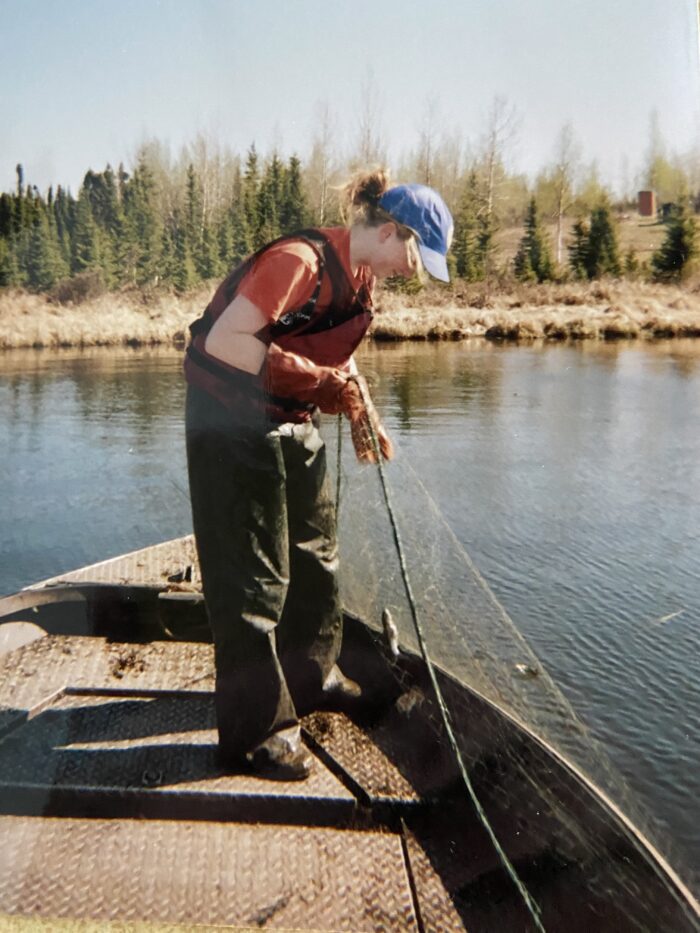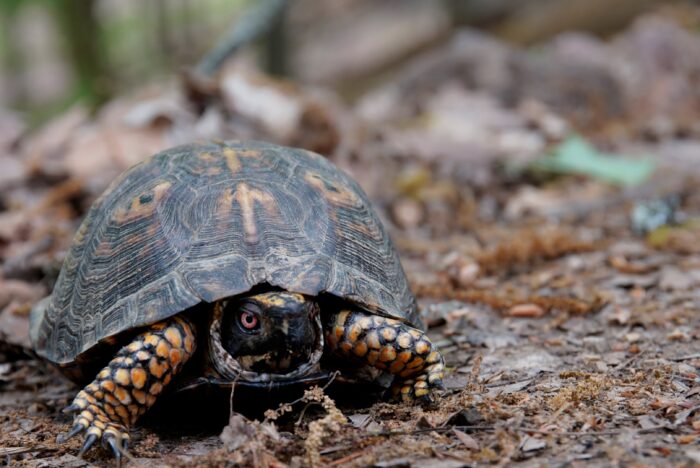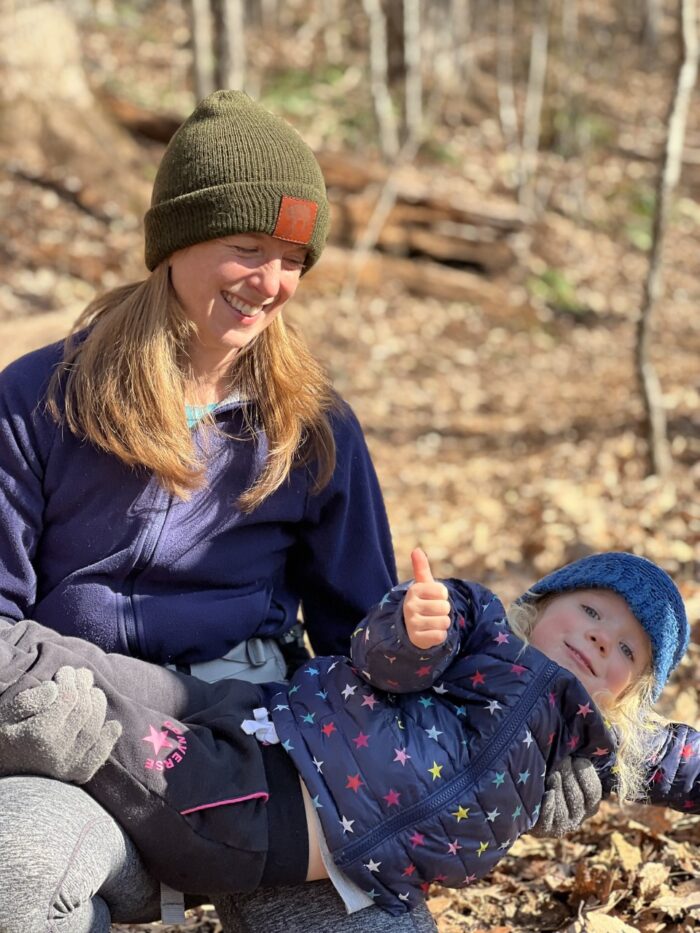Introducing Ramona McGee, SELC’s new Wildlife Program Leader
Senior Attorney Ramona McGee has always been passionate about defending wildlife and habitat, from connecting to flora and fauna while trudging through Alaskan wilderness in chest waders in her early days, to now taking the helm of SELC’s new Wildlife Program.
We asked her about the lifetime of experience that drives her work to preserve our region’s rich biodiversity, what makes the South unique to wildlife conservation, and what we can expect from SELC’s newest program. Read the full interview below.
How has your background informed your passion for wildlife conservation and policy?

From a very young age, a love for science, the natural world, biology, and ecology influenced my favorite hobbies. I was a huge fan of Ranger Rick and Zoo Books — I even spent my allowance on mail-order informational animal cards. Thanks to my parents, who are smart, wonderful people, I not only got to experience wildlife firsthand throughout my childhood by playing outdoors, but I also felt empowered to raise concerns about the environment in junior high and high school.
In high school, I applied for and won a grant through the American Fisheries Society to work with the Alaska Department of Fish and Game. I had a phenomenal time trudging through streams in chest waders, sometimes toting a shotgun or fishing net, and returned to work with Fish and Game every summer during college. Working in the field was invigorating because I felt so connected to the land, flora, and fauna throughout my day to day. My experience there also made me excited about how many new opportunities there were for women in the industry during that time.
I knew from foundational experiences that I had ambition to take more responsibility around wildlife conservation.
What work has shaped your career as an environmental lawyer at SELC?
Working to protect red wolves is something I’m deeply passionate about — and I started on SELC’s efforts during my first day as an associate attorney. We’ve made a lot of progress on red wolves, and we’ve had important court victories and milestones throughout the battle to restore the red wolf population. Advocacy around this endangered species has involved multiple legal filings and comment letters — it’s a great example of SELC bringing all the tools to bear to reach the best solution for the problem at hand. We’ve continuously monitored and advocated for red wolves in and out of court with our clients and partners. They’re also an animal I personally care about — I always liked wolves as a kid, and I remember first learning about red wolves when I was reading Prodigal Summer by Barbara Kingsolver on a river in Alaska. In law school, I heard about them once again when learning about the Endangered Species Act. It’s really special that I now get to work with other attorneys and partners to make a direct impact on their recovery.
Learn more about how SELC is protecting the world’s ony wild red wolves.
Everything we do with our partners and clients brings life to the work. In the wildlife space, we have so many wonderful local, regional, and national groups invested in protecting the South’s biodiversity. Individual groups we’ve spoken to are passionate and knowledgeable about wildlife. I get to talk with botanists, biologists, and other specialists and experts in wildlife management in addition to collaborating across organizations to accomplish a shared goal. It’s a treat that I get to talk to scientists in this capacity — I really enjoy nerding out with and getting to talk with scientific experts.
What’s your favorite Southern species?

It’s impossible to choose one, but I’ve always had a soft spot for reptiles, fish, and insects in particular. Growing up in Alaska, we had a pet Eastern box turtle. Now that I live in North Carolina, I can see what used to be an unusual pet in our backyard. Herons, too, are a marvel — majestic and prehistoric at the same time.
What plans do you have as the leader of the Wildlife Program?
I want to put the South on the map, so to speak, when it comes to talking about imperiled biodiversity. Our region boasts globally significant levels of biodiversity — something that I think a lot of people do not realize. We have a wide range of important and breathtaking habitats, from mountains to coastal plains. And that wide variety of different habitats and species is increasingly at risk.
We have a lot to lose when it comes to southern wildlife, but that also means there’s a lot of work for our new Wildlife Program to do.
Ramona McGee, SELC’s Wildlife Program Leader
What makes the South a unique place for this work?
Given all that’s at stake in this globally significant region, it’s easy to be passionate about advocating for wildlife each day. The South is one of the fastest growing areas of the country — populations in our urban and suburban areas are rapidly increasing, putting additional demands on existing natural resources. Previously undisturbed habitat areas are becoming fragmented, streams are being crossed and polluted, and wildlife are losing much needed areas to live. Many of the same practices or industries that we are concerned about for human health reasons also take a toll on wildlife and habitat. In fact, oftentimes wildlife serve as the first indicator that the natural environment is suffering.
What practices (mindfulness, habits, or advice) have made you successful as an attorney and leader of a team?

I started dabbling in meditation and mindfulness when I was pregnant, and it’s a practice I’ve been pretty consistent with since then. Of course, this is still a practice — I definitely need reminders and a focused “refresh” every now and then. The general concepts of being present, or of being conscious of my breath, are very centering and have been so helpful in staying calm and focused while rushing between work and parenting and everything in between.
Exercise, particularly running, has been a stress-relieving habit throughout my entire adult life. I love running outside in new places. One of my favorite races has been the Blue Ridge Relay from Grayson Highlands State Park in Virginia, to Asheville in North Carolina — a race I’ve done twice with a team of SELC colleagues.
Finally, it’s so important to stay connected to nature, and to the special areas and resources we work so hard to protect. I love getting outside, admiring nature with my four-year-old daughter. One day when we were hiking this summer, she stopped to watch and play with a millipede for a solid fifteen minutes. Talk about being present and mindful!
What do you recommend for people facing the reality of climate change and biodiversity loss in the coming decades?
Spend time learning about the amazing plants and animals all around you. Appreciate them and be inspired by them.
